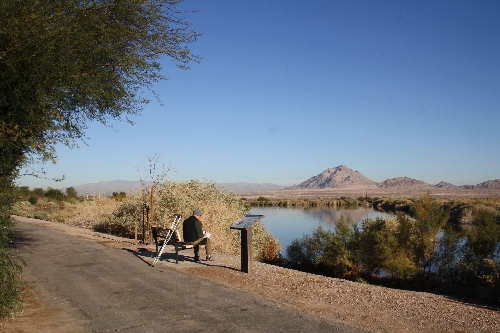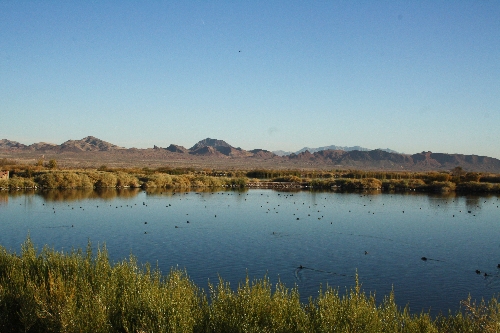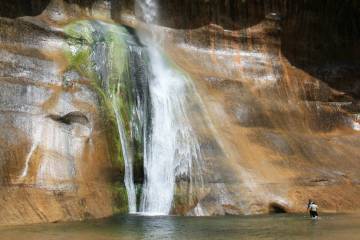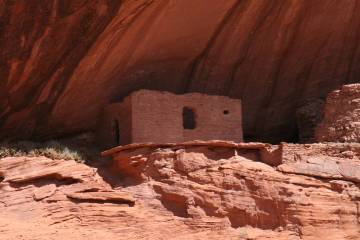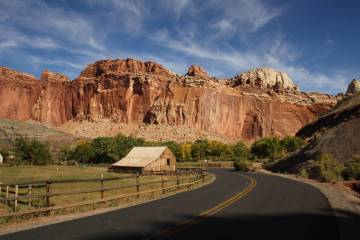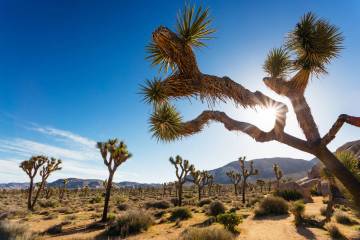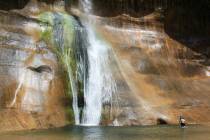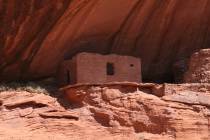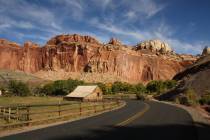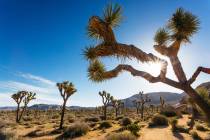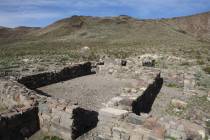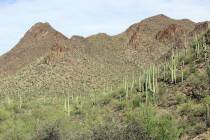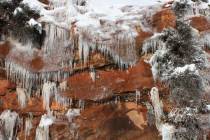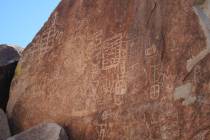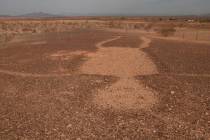Henderson preserve is a fine spot for winter birding
The Henderson Bird Viewing Preserve is a hidden gem. It encompasses more than 100 acres and contains nine different ponds, three of which are accessible along a paved, level three-quarter-mile loop trail.
You can extend your visit to other ponds along gravel-surfaced but soft pathways. They are all fairly level but may require assistance. The main trail contains numerous resting benches, interpretive signs and access to the covered lower level of an elevated birding viewing platform.
For birding, this is one of the top choices in the Las Vegas Valley. The park is on the eastern edge of the Pacific Migratory Flyway, so many birds are just temporary visitors here. During winter and early spring you can expect to see a variety of ducks, including northern shoveler, green wing, cinnamon and blue wing teal, pintail, bufflehead and the extraordinary wood duck. This time of year you may also find it to be the perfect time to see geese such as Canada, snow, Ross's and even possibly a tundra swan.
The preserve also provides an excellent place to see raptors. Look for northern harriers, peregrine falcons and both sharpshinned and Cooper's hawks. You may spot the golden eagle, an occasional resident. Other resident species include greater roadrunner, Gambel's quail, verdin, Albert's towhee and the loggerhead shrike.
The preserve has an excellent visitor center, which has a gift shop, bookstore and numerous exhibits, including a variety of nests, examples of bird eggs and other avian and wildlife displays. It also has a classroom that offers programs for all ages.
This area was first included in the National Audubon Society's Christmas count in 1967. The preserve was officially dedicated in 1998 as "A Place to Call Home" for more than 250 bird species. It is located at the city of Henderson's Water Reclamation Facility. This spot was also used by the Point Reyes Bird Observatory to conduct a nationwide survey on shore birds.
The preserve is free to enter, but all visitors must sign in at arrival. A wheelchair is available for use, and the facility also offers free use of binoculars. There are accessible parking spaces and bathrooms and also an accessible shaded picnic area. The preserve also offers educational programs for all ages.
The park is at an elevation of 1,610 feet and is open year-round, but summers are hot, except in the early mornings. Ideal viewing times are from October through April. Through February, the preserve is open from 7 a.m. to 2 p.m. From March to May it is open from 6 a.m. to 2 p.m. The last entry is 30 minutes before closing.
Deborah Wall is the author of Base Camp Las Vegas: Hiking the Southwestern States" and "Great Hikes, A Cerca Country Guide," published by Stephens Press. Dennis Boulton is a retired Nevada schoolteacher and geologist. They can be reached at deborabus@aol.com.
If you go
The Henderson Bird Viewing Preserve is at 350 E. Galleria Drive, near the intersection of Galleria Drive and Boulder Highway. Look for signs in the medians. It is located within the Henderson Water Reclamation Facility and sits on approximately 140 acres.



